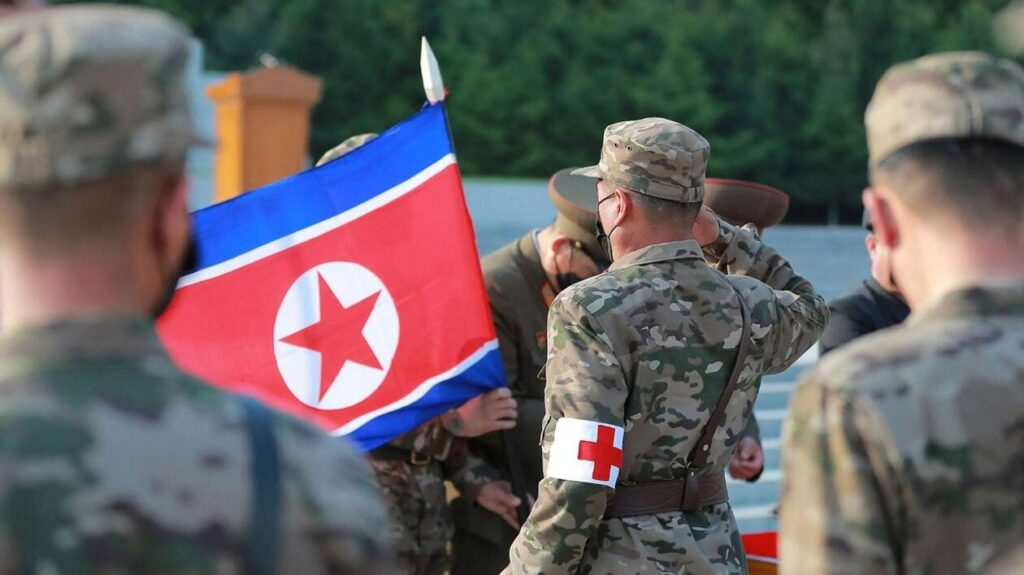North Korea remains an exception. While the world is experiencing a general ebb from the Covid-19 pandemic, the Asian country led by Kim Jong-un is experiencing a strong period of turbulence.
1. Why had North Korea been spared so far?
In early 2020, when Sars-Cov-2 was first detected in neighboring China, North Korea took immediate action to prevent the arrival of the virus on its soil. Already isolated internationally, the country has decided to tighten the screws a little more by closing its borders from January 25, 2020 and limiting the movement of its population.
A strategy that allowed North Korea not to report cases to the World Health Organization for more than two years but which was eased in January with the restoration of rail freight with China.
2. What is the magnitude of the wave affecting the country?
On May 12, the official KCNA agency communicated on the collection of samples corresponding to the Omicron variant from feverish patients in the capital
. Since then, the number of cases has climbed very rapidly. According to the latest official report, 1.5 million cases of fever
have been identified, at least 663,910 people are receiving medical treatment
and 56 people died.
For Hong Min, a researcher at the Seoul-based Korea Institute for National Unification, the current Covid-19 outbreak is closely linked to the April 25 parade
, a gigantic military parade on the occasion of the 90th anniversary of the Korean People’s Revolutionary Army.
3. What is the state of the health system?
North Korea’s healthcare system was ranked 193rd out of 195 countries by a study by the American Johns Hopkins University last year. The country’s hospitals are notoriously under-equipped, with few intensive care units. According to experts, the country has no treatment for Covid-19 and does not have the capacity to massively test its population.
Most North Koreans are chronically malnourished and unvaccinated, there are hardly any medicines left in the country and the health infrastructure is unable to cope with this pandemic
, said Lina Yoon, a Korea researcher at Human Rights Watch.
4. What measures have been taken to fight the epidemic?
In the wake of the first case, leader Kim Jong-un ordered a nationwide lockdown to try to stem the spread of the virus. He also deployed the army to deal with the epidemic to provide medication
.
Kim Jong-un also strongly criticized the government and health authorities for their handling of the epidemic. According to him, officials in charge of drug supply have not rolled up their sleeves and properly assessed the current crisis
5. What help for North Korea?
Several countries have expressed their readiness to help North Korea. This is the case of the two neighbors and allies that are China and Russia. As a brother country, neighbor and friend of North Korea, China is ready to give it all its support to help it face the Covid-19.
, Beijing said on May 12.
South Korea, which is in conflict with its northern neighbor, has also offered to help. The new president, Yoon Suk-yeol affirmed Monday, May 16 before the National Assembly that he would not hesitate to provide necessary assistance to the North Korean people
provided he accepts it. So far, Pyongyang has not responded.
Before the crisis, North Korea had already refused the supply of vaccines by Beijing, by Moscow, and a fortiori by the international Covax program which would have led to foreign supervision.
6. Is the nuclear threat used as a diversion?
The situation is all the more complicated that despite the health crisis, new satellite images indicate that North Korea has resumed the construction of a nuclear reactor long interrupted. Washington and Seoul suspect Pyongyang of preparing a nuclear test, which would be the seventh in its history and the first since 2017, in order to divert the attention of the North Korean population.

